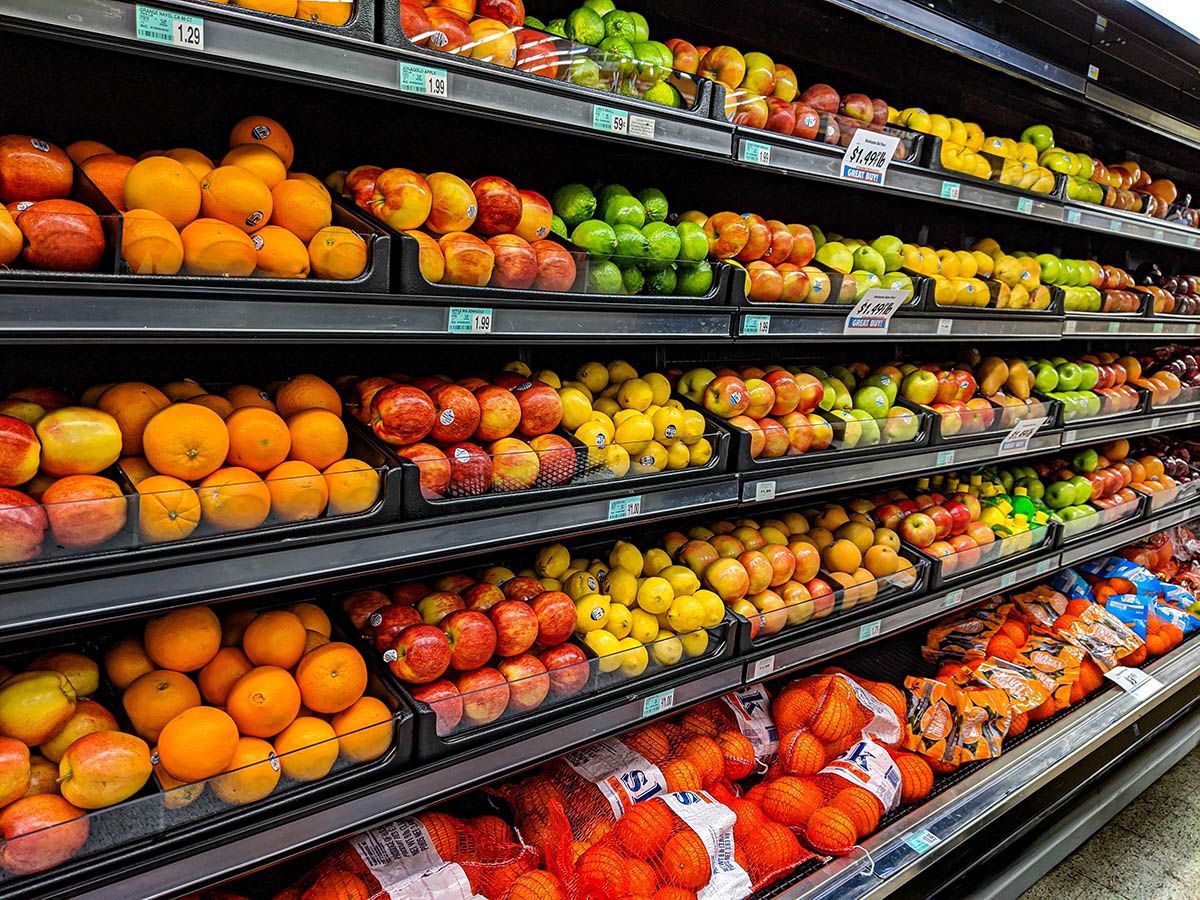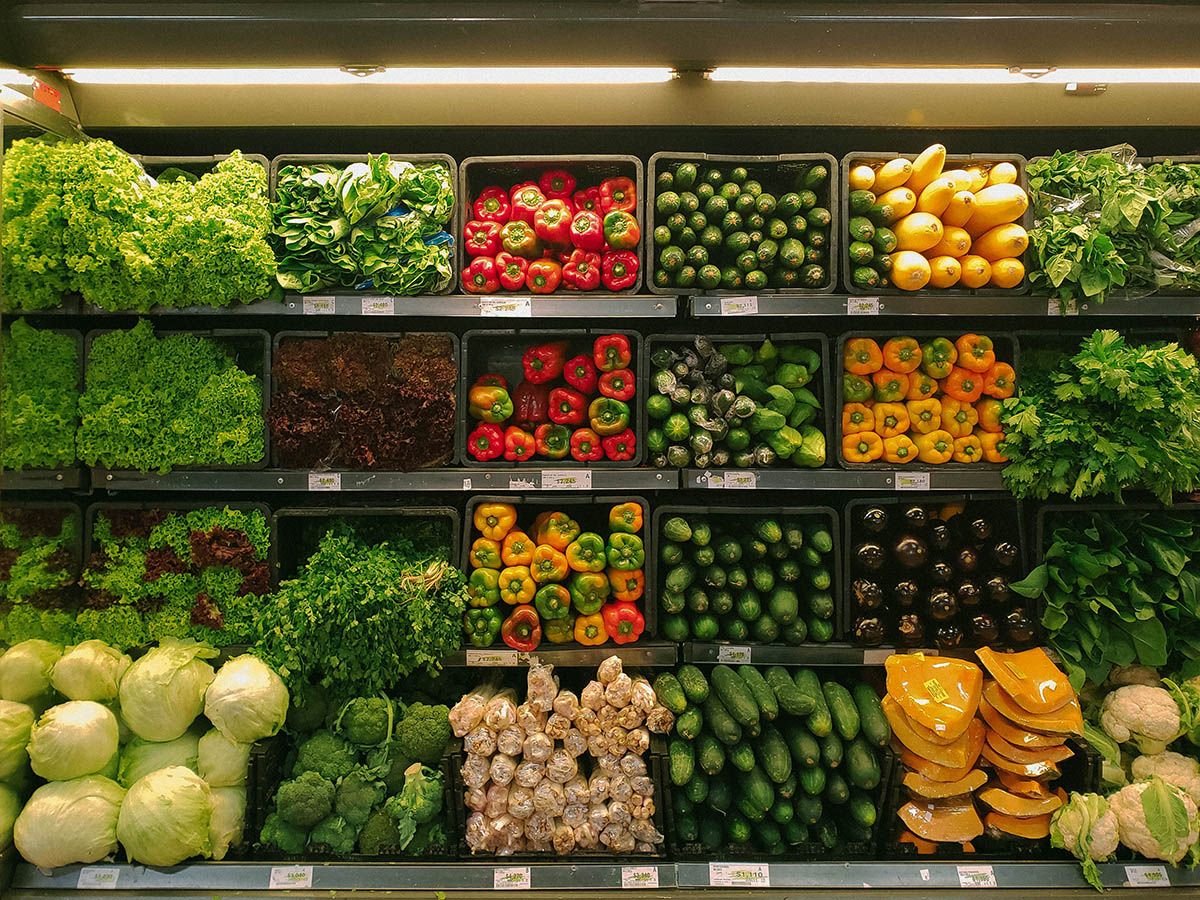Save money on your food shopping: dos and don’ts
Below, we’ve listed some tried and tested tips that could help you save money on your food shopping.
1. Do shop around
As of August 2025, Aldi was Britain’s cheapest supermarket, according to Which?.
Checking into discount supermarkets like Aldi and Lidl could be a great place to start when looking to bag the best price on your weekly shop.
You could also find some decently priced produce at local markets and smaller independent shops.
2. Do time your shop wisely
Strategically planning the time of your shop could help you access the best discounts and promotions.
Many supermarkets and food shops reduce prices of certain products, such as vegetables and meat, at the end of the day, especially if the sell- or use-by dates are approaching.
The best time to bag these bargains will depend on where you shop and could differ day-to-day. Check out this handy guide for further information and possible ‘yellow sticker’ shopping times based on different UK supermarkets.
Remember, use by means that a product must be consumed before the date provided for safety reasons, whereas best before indicates when the food is at its best in terms of flavour, but is still safe to consume.
3. Do use vouchers and coupons
Supermarket vouchers and coupons offering money off or promotions on certain items are sometimes sent to customers through the post or via an app. You could also look for them in newspapers and magazines.
Vouchers and coupons could offer some savvy savings if they can be redeemed against items that you would have bought anyway.
4. Don’t shop on an empty stomach
When shopping on an empty stomach, your cravings will try their best to pull you away from your designated shopping list and budget.
A ‘share’ bag of crisps? They weren’t on the list, but they’d certainly hit the spot right now!
A bar of chocolate? You hadn’t even thought about it until the hunger pangs inconveniently piped up in the confectionery aisle.
Avoid spending more money than necessary by eating a full meal or a snack before you head out.
5. Don’t fall for special offers without thinking about it first
Sometimes, it feels like it’s impossible to walk around the supermarket without noticing an array of special offers, usually marked by enticing bright colours and large writing.
These often seem like a great deal – and sometimes they are – but if an item wasn’t on your list to begin with and you have no immediate use for it, don’t be tempted to buy it just because it’s on offer.
6. Don’t shop exclusively for points
Some supermarkets offer a loyalty scheme, which rewards spending with points and/or perks. Sometimes, the more you spend, the more points you gain, and these could later be exchanged for a reward or money off the price of a shop.
Got a loyalty card for one supermarket, but know you could spend less elsewhere? If you’re staying loyal to reap the possible rewards, consider whether the reward you’re working towards is worth the amount of money you’re spending to get there.

Clever Shopping Swaps
1. Swap big names for own brands
Beans means Heinz?
It has to be Hellman’s?
A Glass and a Half in Every Bar?
Chances are, you automatically associate these slogans with some of the UK’s biggest foodie brands.
Buying branded doesn’t necessarily mean better quality. In fact, it’s well renowned that supermarket own-labels aren’t only often cheaper, but also somewhat tastier. In a recent ‘taste test’ conducted by Which?, eight supermarket own-label products, including roast potatoes, teabags, and baked beans, came out on top when compared to their elite edibles.
2. Ditch the meal deals
Grabbing a lunchtime meal deal might seem like a convenient and reasonably priced option, but the chances are, you could probably make your own lunch at home for less.
Whether you get on board with meal prepping, rustle up a hearty homemade sandwich each morning, or simply box up last night’s leftovers, taking your own food to work could save you a significant amount of money.
3. Quit takeout coffee
Can’t start the day without a coffee from your favourite barista?
The average cost of a coffee in the UK is £3.35. This means that if you’re buying one before work five days a week, you’re racking up a spend of £67 a month – on coffee!
Did you know that you could actually buy your own basic coffee machine for a little more than that cost?
There’s no reason why you can’t still enjoy your pre-work coffee – but your monthly budget could be slashed by investing in a coffee machine or simply firing up the kettle at home.
4. Go heavy on veggies
Bulking out meals with vegetables and pulses, such as beans and lentils, could make your food go further, as well as keep you fuller for longer. With the addition of these filling and nutritious ingredients, you may find that you buy less meat, which could reduce your grocery bill.
5. Visit the world food aisle
You might have already switched up your supermarket, but did you know that you could seek out a deal down a different aisle?
When it comes to store cupboard staples like rice and spices, paying a visit to the world food aisle could help you to save money when compared to the cost of regular products.
6. Buy seasonal produce
When wondering how to save money on food, it could help to research which products are currently in season.
In-season products are more likely to have been grown locally rather than imported from miles away. In addition to reducing your carbon footprint, shopping seasonally may also make your groceries cheaper, as the price won’t reflect transportation costs.
7. Treat yourself to a ‘fakeaway’
From a tasty Chinese meal to a classic fish and chip supper on a Friday night, takeaway food is satisfying - but it certainly isn’t cheap!
Rather than splurging on an expensive takeaway, why not pledge to make a fakeaway instead?
From pizzas and peri-peri chicken to curries and chips, this blog shares some budget-friendly fakeaway recipes.
8. Make it yourself
Don’t just stop at making the odd takeaway alternative yourself – try making more of your meals from scratch. Ready meals and convenience foods can not only be expensive, but they’re also typically less nutrient-dense than home-cooked foods. This means that they’re less healthy and won’t fill you up for quite so long.

How to plan your weekly shop
With all these hints and hacks in mind, it’s important to think carefully about how you approach food shopping.
Making multiple trips could work out as an expensive way to shop, as you risk picking up extra products that you don’t actually need, as well as factoring in any petrol or transport costs.
You might find it easier to carefully plan your grocery shopping in advance to maximise convenience and minimise spending.
Before you head to the shops, be sure to check your food cupboards, fridge and freezer to identify what you already have. This exercise should form the basis of the meals that you plan for the week ahead.
Got a can of kidney beans? Consider making chilli con carne.
Been ignoring that pack of frozen mince? Why not buy the remaining ingredients for a cottage pie?
Meal planning is the very best way to eliminate unnecessary spending at the supermarket checkout. By breaking down your week into breakfasts, lunches, and dinners, you can make sure you always have an option to turn to without having to resort to an expensive takeaway.
Once you’ve checked your cupboards and planned your meals, make a list of everything you might need to buy. The most important thing about making a shopping list? Sticking to it!
Final thoughts
Through a series of simple swaps and by being strict with your list, you could save money on your food shop and reduce your household spend on groceries. The best news is that you don’t even necessarily need to cut out your favourite foodie staples – it’s all about changing your spending habits and taking the time to understand how to make the most of your money.

